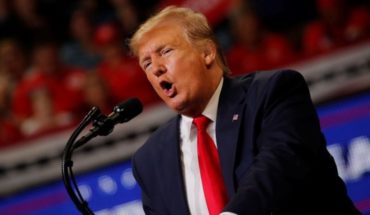The position of Minister of Finance has always exerted a special fascination in Chileans. From Manuel Rengifo, through Gustavo Ross, Sergio de Castro, Hernán Büchi, to Alejandro Foxley and Andrés Velasco. We tend to remember (for better or worse) finance ministers more than other government officials. Can the reader remember the names of 5 recent interior ministers? Can you remember 5 finance ministers?
Perhaps for the same reason it is a position that usually awakens greater ambitions in those who exercise it. Büchi was a presidential candidate in 1989, and more recently, Andrés Velasco and Ignacio Briones participated in primaries (in general, without success, the last finance minister to become president was Jorge Alessandri in 1958).
It is also (or was) a position with a lot of job security. Between 1990 and 2014, Chile had 11 interior ministers, but only 6 finance ministers. Bachelet II and Piñera II broke this trend, both had 3 finance ministers in their periods.
In the coming days we will finally know who will assume the Treasury portfolio. Since the night of the election, it has undoubtedly been the announcement that has attracted the most attention from the media and public opinion. Unlike past transitions, where there were no big surprises and there were clear favorites, this time a large number of candidates have been proposed, and there are already several who have indicated that they are not available.
What power will he have? The first governments of the Concertación were characterized by finance ministers who not only had control over the fiscal wallet, but would also exert a strong influence over the decisions of the sectoral ministries. The relative power of the finance ministers decreased from the first government of Piñera (who in practice served as a kind of superminister), and above all, in the second government of Bachelet. The expectations of a good part of the economic agents point to an empowered minister capable of ordering and prioritizing the demands for greater spending that will come from the different areas of the government. Will the sectoral ministers (and the parties in the President’s coalition) agree with this?
The future minister must also show the ability to negotiate the approval of key bills for the government (such as tax changes), in a parliament without a majority, and that, in recent years, has shown a clear tendency to disorder. Recent experiences have shown that tax reforms are especially difficult, since not only are there important ideological differences, but also influenced by interest groups (it is no coincidence, for example, that the elimination of presumed income has been discussed since the Aylwin reform in 1990 and still remains in our legislation).
Whoever takes over must also be able to lead a diverse team internally. In the second round, economists of different sensibilities and who had worked on other campaigns joined the work of the President-elect’s economic plan. Signs suggest that there are quite a few people close to the old coalition who will assume positions in the government (experience is always an important asset). Will you be able to reconcile ideas and work styles that will undoubtedly be different?
These are important challenges that will mark the trajectory of our economy in the coming years, now it remains only to wait for the decision of the President-elect and that the leadership of fiscal policy is in good hands.
The content expressed in this opinion column is the sole responsibility of its author, and does not necessarily reflect the editorial line or position of El Mostrador.





